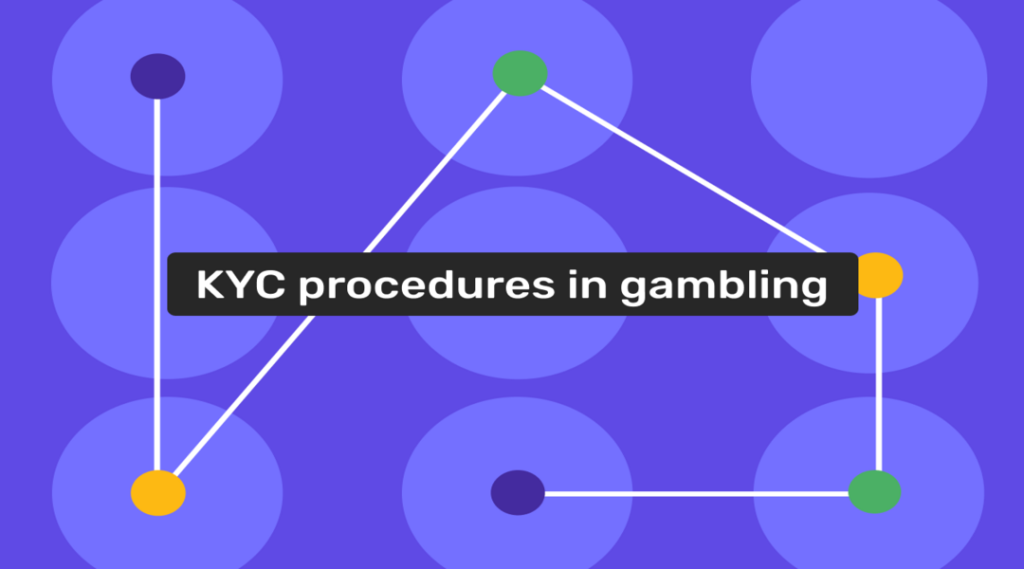KYC Gambling: An In-Depth Review of Regulation and Player Protection

In recent years, the online gambling industry has undergone rapid transformation. Stricter rules, technological innovation, and shifting consumer expectations have shaped how operators and players interact. One of the most significant developments in this landscape is the adoption of KYC protocols, short for “Know Your Customer.” While players often encounter KYC procedures when registering or withdrawing funds, many remain unclear about their true function, scope, and impact on gambling platforms. This review examines KYC gambling in detail, focusing on its legal background, practical application, benefits, challenges, and implications for both operators and players.
KYC Meaning in the Gambling Industry
The phrase “KYC meaning” refers to the requirement for businesses to verify the identity of their customers. This is not unique to gambling. Banks, fintech companies, investment platforms, and insurance firms have followed these principles for decades. However, when applied to online gambling, KYC ensures that betting platforms know who their players are before providing services.
At its core, KYC is designed to prevent money laundering, fraud, and underage gambling. It obligates operators to collect and analyze documents such as a government-issued ID, proof of address, and sometimes proof of income. While some players see this as an unnecessary barrier, regulators argue that KYC is vital to safeguarding both consumers and financial systems.
The Legal Basis: Know Your Client Regulation
The international foundation for these requirements is known as “know your client regulation.” This legal framework stems from anti-money laundering (AML) directives and counter-terrorism financing policies developed globally since the late 20th century. For instance, in the United States, the Patriot Act and subsequent financial laws introduced strict KYC rules across industries. The European Union’s Anti-Money Laundering Directives also place strong emphasis on identity verification for online gambling platforms operating within its jurisdiction.
Globally, compliance is non-negotiable. Operators who fail to perform adequate checks risk heavy fines and, in severe cases, license revocation. Over the past five years, several gambling companies have collectively paid hundreds of millions in penalties for weak or delayed KYC procedures.
How KYC Gambling Works in Practice

To better understand the process, consider the standard steps a player encounters when interacting with a regulated platform:
- Account Creation: During sign-up, players provide basic information such as name, date of birth, and address.
- Document Submission: To activate withdrawals or access full services, users submit identification documents.
- Verification: Operators validate the documents through in-house checks or third-party providers specializing in identity verification.
- Ongoing Monitoring: Accounts are reviewed periodically, especially if suspicious transactions or unusually large sums are detected.
These steps are not always linear. Some operators request KYC documentation immediately after registration, while others only require it when players attempt a withdrawal.
The Benefits of Casino KYC
From the player’s perspective, casino kyc procedures can appear frustrating, particularly when they delay withdrawals. However, the benefits are substantial:
- Fraud Prevention: By linking accounts to verified identities, operators reduce the risk of multiple accounts or identity theft.
- Player Protection: KYC helps block underage users and supports responsible gambling measures.
- Financial Security: Ensuring that deposits and withdrawals go through legitimate channels reduces exposure to fraud and chargebacks.
- Industry Integrity: Strong KYC builds trust between players, operators, and regulators, enhancing the reputation of the sector.
The Global Picture: Adoption and Variations
Not every jurisdiction treats KYC the same way. While Europe and North America enforce stringent identity checks, other regions adopt more relaxed policies. For example, some Asian markets allow operators to conduct lighter verification, particularly where national identity systems are not robust. In contrast, Scandinavian countries are among the strictest, often requiring players to verify their identity before making their first deposit.
Challenges and Criticisms
Despite the benefits, KYC gambling is not without problems. One of the main criticisms involves the complexity of the process. Players frequently complain about long verification times, rejected documents, or requests for additional information that feel invasive.
Another challenge lies in data protection. With sensitive personal information being collected and stored, the risk of breaches or misuse becomes a serious concern. In fact, cybersecurity experts highlight gambling platforms as attractive targets for hackers precisely because of the wealth of personal and financial data they hold.
Additionally, regulators and consumer advocates debate whether excessive KYC measures could push players toward unregulated platforms. These offshore sites may not require documentation at all, attracting users who prioritize speed and anonymity over safety.
Technological Advances in KYC
To address such challenges, many companies are investing in advanced technologies. Automated document verification, biometric identification, and AI-driven risk assessments have shortened the verification process significantly. According to recent reports, automation can cut KYC processing times from days to just a few minutes, improving player experience without sacrificing compliance.
For example, facial recognition tools can now match a player’s selfie with the photo on their identification document in real time. Similarly, blockchain-based identity systems are being tested to allow players to verify their identity once and use that verification across multiple platforms.
The Balance Between Privacy and Security
Perhaps the most sensitive issue surrounding KYC gambling is the balance between protecting players and respecting their privacy. On the one hand, operators must collect data to satisfy legal obligations. On the other hand, players increasingly value anonymity, especially in an era where data breaches are common.
Surveys suggest that nearly 60 percent of online gamblers worry about how their personal information is stored and used. This concern has led to new approaches, including “light KYC” models that verify only the minimum required data. While these models are less invasive, they are also less effective in detecting sophisticated money laundering schemes.
Economic Impact of KYC in Gambling
The economic implications extend beyond compliance costs. A study conducted in 2023 revealed that operators spend, on average, between $50 and $150 per customer on KYC verification, depending on the jurisdiction. While these expenses are significant, they are offset by reduced fraud-related losses.
Moreover, compliance fosters investor confidence. Financial analysts point out that companies with robust KYC frameworks are more attractive to institutional investors, who prefer stability and legal security over short-term gains.
Looking Ahead: The Future of Identity in Gambling
As digital gambling continues to expand, KYC will remain a cornerstone of regulation. Experts predict that within the next decade, real-time verification systems powered by artificial intelligence and global identity databases will become standard. Players may see faster onboarding, but with even greater scrutiny on transaction monitoring.
Governments are also expected to harmonize regulations, creating more consistent requirements across jurisdictions. While this may reduce confusion for operators, it will also raise the baseline of compliance for all players worldwide.